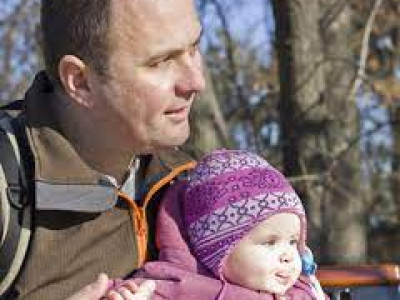Increased mutations in children can be traced back to mistakes in father's sperm
Some rare cases of higher genetic mutation rates in children, known as hypermutation, could be linked to the father receiving certain chemotherapy treatments, new research has found.
Scientists from the Wellcome Sanger Institute and their collaborators analysed over 20,000 families' genetic information and identified 12 children with between two to seven times more mutations than the general population. The team linked the majority of these to increased .mutations in the sperm of the biological father
The research, published today (11 May 2022) in Nature, shows that just under half of these fathers had been treated with certain types of chemotherapy earlier in life, which could be linked to the increased number of mutations in their sperm cells.
If further research confirms an impact of chemotherapy, patients could be offered the opportunity to freeze their sperm before treatment.
One of the main factors influencing mutation rate is the age of the parents, with mutations increasing by 1.3 mutations per year in the fathers and 0.4 mutations per year in mothers2. If there is a higher number of germline mutations, there is a higher risk of a child being born with a dominant disorder. However, hypermutation in children does not always mean they will have a dominant disorder.
Professor Matthew Hurles, senior author and Head of Human Genetics at the Wellcome Sanger Institute, said: "Chemotherapy is an incredibly effective treatment for many cancers, but unfortunately it can have some damaging side effects. Our research found a plausible link between two types of chemotherapy and their impact on sperm in a very small number of men. These results require further systematic studies to see if there is a causal link between chemotherapy and sperm mutations, and if there is a way of identifying individuals at risk prior to treatment so they could take family planning measures, such as freezing their sperm prior to treatment. I would also like to thank the families that donated their genetic and health information to make this research possible."
Reference:
Joanna Kaplanis, Benjamin Ide, Rashesh Sanghvi, Matthew Neville, Petr Danecek, Tim Coorens, Elena Prigmore, Patrick Short, Giuseppe Gallone, Jeremy McRae, Loukas Moutsianas, Chris Odhams, Jenny Carmichael, Angela Barnicoat, Helen Firth, Patrick O’Brien, Raheleh Rahbari, Matthew Hurles. Genetic and chemotherapeutic influences on germline hypermutation. Nature, 2022; DOI: 10.1038/s41586-022-04712-2


